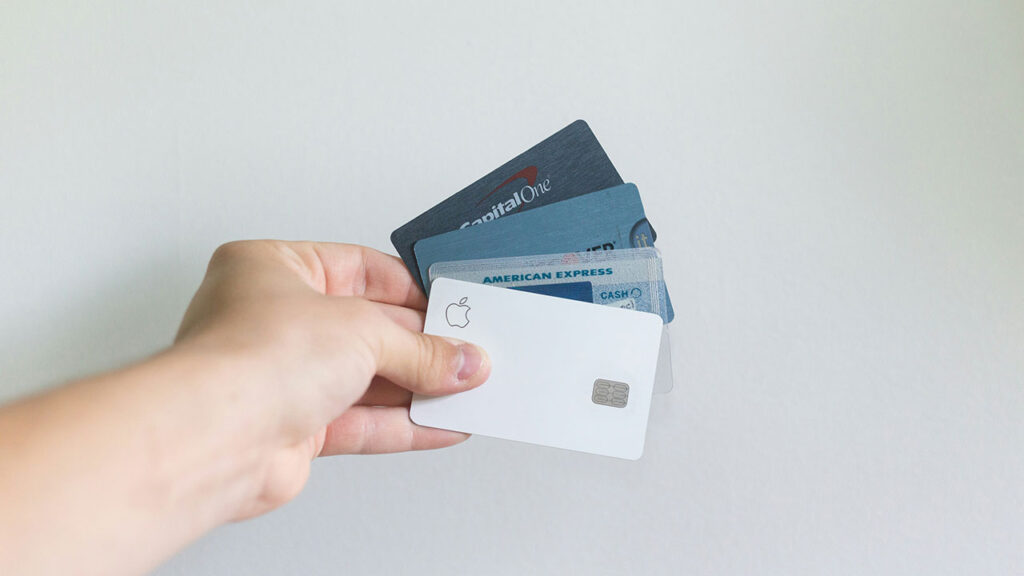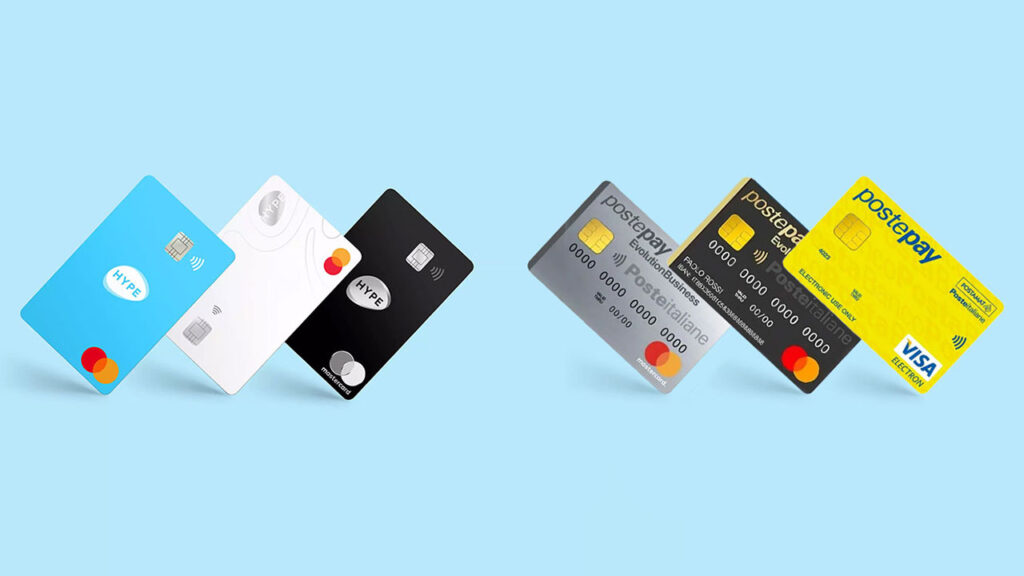As we move deeper into the digital age, managing personal finances has become more crucial and accessible than ever. In 2024, Italian consumers have a plethora of financial tools at their disposal, but two of the most common are credit cards and prepaid debit cards. Each option offers unique advantages and potential drawbacks, but which one is the best fit for you? This comprehensive guide will help you navigate the world of credit cards and prepaid debit cards in Italy, enabling you to make an informed decision that suits your financial lifestyle.
Understanding Credit Cards and Prepaid Debit Cards
Before we delve into the comparison, it’s important to understand the basic differences between credit cards and prepaid debit cards.
Credit Cards
A credit card allows you to borrow money up to a certain limit for purchases or cash advances. The credit limit is set by the card issuer based on your creditworthiness. You’re required to pay back the borrowed amount, typically with interest if not repaid in full by the due date. Credit cards also offer various benefits, such as reward points, cashback, and travel insurance, depending on the type of card.
Prepaid Debit Cards
A prepaid debit card, on the other hand, is not linked to a line of credit or a bank account. You load money onto the card before using it. When you make a purchase, the amount is deducted directly from the available balance on the card. Once the balance is depleted, you need to reload the card to continue using it. Prepaid cards are often used by people who want to control their spending or those who might not qualify for a credit card.
Pros and Cons of Credit Cards in 2024
Advantages
- Credit Building: One of the primary benefits of using a credit card is that it helps build your credit score. Responsible use, such as paying your bills on time and keeping balances low, can positively impact your credit report, which is essential for securing loans, mortgages, or even renting a home.
- Flexible Payments: Credit cards offer the convenience of flexible payments. You can choose to pay off the entire balance at once or make minimum payments and carry over the remaining balance to the next month. This flexibility is useful for managing larger expenses.
- Rewards Programs: Many credit cards offer rewards such as cashback, points, or miles. These rewards can be redeemed for travel, shopping, or even statement credits. For frequent travelers, certain credit cards offer additional perks like airport lounge access or travel insurance.
- Security: Credit cards come with robust consumer protections. If your card is lost or stolen, or if unauthorized transactions occur, you are typically not liable for the fraudulent charges, provided you report them promptly.
- Emergency Funds: In emergencies, a credit card can be a lifesaver, providing access to funds when you need them most, even if you don’t have the money immediately available.
Disadvantages
- Interest Rates: If you don’t pay off your balance in full each month, the remaining balance accrues interest, which can be high. Over time, this can lead to significant debt if not managed properly.
- Fees: Many credit cards come with various fees, including annual fees, foreign transaction fees, and late payment fees. These can add up, especially if you’re not careful about managing your account.
- Debt Risk: The ease of borrowing can lead to overspending, which in turn can lead to accumulating debt that might be difficult to pay off. This is particularly risky if you’re carrying multiple credit cards with high balances.
- Impact on Credit Score: While credit cards can help build your credit, they can also hurt it. Late payments, high credit utilization, and maxed-out cards can negatively impact your credit score.
Pros and Cons of Prepaid Debit Cards in 2024
Advantages
- Spending Control: Since you can only spend the money that you have loaded onto the card, prepaid debit cards help control spending and prevent debt accumulation. They are ideal for budgeting and for those who want to limit their spending to a certain amount.
- No Credit Check: Prepaid debit cards do not require a credit check, making them accessible to individuals who may not qualify for a credit card due to poor credit history or no credit history at all.
- No Debt Risk: With a prepaid card, there’s no risk of going into debt because you’re not borrowing money. Once your balance is zero, you simply can’t make any more purchases until you reload the card.
- Security: Like credit cards, prepaid cards offer a level of security. If your card is lost or stolen, the loss is limited to the amount of money you have on the card, and many issuers offer protections similar to those of credit cards.
- Easy Reloading: In 2024, reloading a prepaid card is easier than ever, with options ranging from bank transfers to in-person cash deposits at various retailers and online reloads through apps or websites.
Disadvantages
- Limited Benefits: Unlike credit cards, prepaid debit cards typically do not offer rewards or perks such as cashback or travel benefits. They are more about convenience and control than additional financial benefits.
- Fees: Prepaid debit cards can come with various fees, including activation fees, reload fees, monthly maintenance fees, and ATM withdrawal fees. These fees can add up and reduce the overall value of the card.
- No Credit Building: Since prepaid debit cards are not linked to credit, they do not help build or improve your credit score. If you’re looking to establish or improve your credit, a prepaid card won’t be of much help.
- Spending Limitations: The amount you can spend is limited to what you have loaded onto the card. This can be a disadvantage in situations where you need to make a large purchase or during emergencies.
- Acceptance Issues: While prepaid debit cards are widely accepted, there may be some limitations, particularly with certain types of transactions, such as car rentals or hotel reservations, where a traditional credit card is often preferred.
Choosing Between a Credit Card and a Prepaid Debit Card in 2024
To determine which option is best for you, consider the following factors:
1. Your Financial Goals
- Build Credit: If your goal is to build or improve your credit score, a credit card is the better choice. With responsible use, you can gradually improve your creditworthiness, which is crucial for future financial endeavors.
- Control Spending: If you’re more focused on controlling your spending and avoiding debt, a prepaid debit card might be the better option. It allows you to budget more effectively without the temptation to overspend.
2. Your Spending Habits
- Frequent Traveler or Shopper: If you travel frequently or make a lot of purchases, a credit card with rewards could provide significant benefits, such as cashback, points, or travel perks.
- Budget Conscious: If you prefer to stick to a strict budget and avoid overspending, a prepaid debit card ensures that you only spend what you have, helping you stay within your financial limits.
3. Your Comfort with Financial Management
- Comfortable with Credit: If you’re comfortable managing credit and can pay off your balance in full each month, a credit card offers flexibility and benefits that a prepaid card cannot match.
- Prefer Simplicity: If you prefer simplicity and don’t want to worry about interest rates or debt, a prepaid debit card offers a straightforward way to manage your money without the complexities of credit.
4. Fees and Costs
- Analyze the Costs: Both credit cards and prepaid debit cards come with fees, but the types of fees differ. Consider the fees associated with each option and how they align with your usage patterns. For example, if you travel frequently, a credit card with no foreign transaction fees might be more cost-effective than a prepaid card with high ATM fees.
The Italian Financial Landscape in 2024
In 2024, Italy continues to embrace digital banking and financial technologies, with more consumers opting for contactless payments and mobile banking. This trend has influenced the features and benefits offered by both credit cards and prepaid debit cards.
Regulatory Environment
Italian regulations continue to focus on consumer protection, ensuring transparency in fees and charges associated with financial products. This means that both credit cards and prepaid debit cards are subject to stringent rules that protect users from unfair practices, making both options safer than ever before.
Technology and Security
With advancements in technology, both credit cards and prepaid debit cards in Italy now offer enhanced security features, such as EMV chip technology, contactless payments, and real-time transaction alerts. These features help protect consumers from fraud and unauthorized transactions.
Financial Inclusion
The rise of prepaid debit cards has played a significant role in promoting financial inclusion in Italy. For individuals who may not have access to traditional banking services, prepaid cards provide a viable alternative, allowing them to participate in the digital economy.
Conclusion: Which Should You Choose?
Both credit cards and prepaid debit cards have their place in the financial toolkit of Italian consumers in 2024. The choice ultimately depends on your personal financial goals, spending habits, and comfort level with managing credit.
Consider a Credit Card If:
- You want to build or improve your credit score.
- You’re interested in earning rewards, cashback, or travel benefits.
- You can manage payments responsibly and avoid carrying high balances.
Consider a Prepaid Debit Card If:
- You prefer a straightforward approach to managing your money.
- You want to control your spending and avoid debt.
- You do not need the additional perks offered by credit cards.
By carefully evaluating your financial situation and understanding the pros and cons of each option, you can make the best decision for your needs, ensuring that your financial tools work for you, not against you, in 2024 and beyond.


